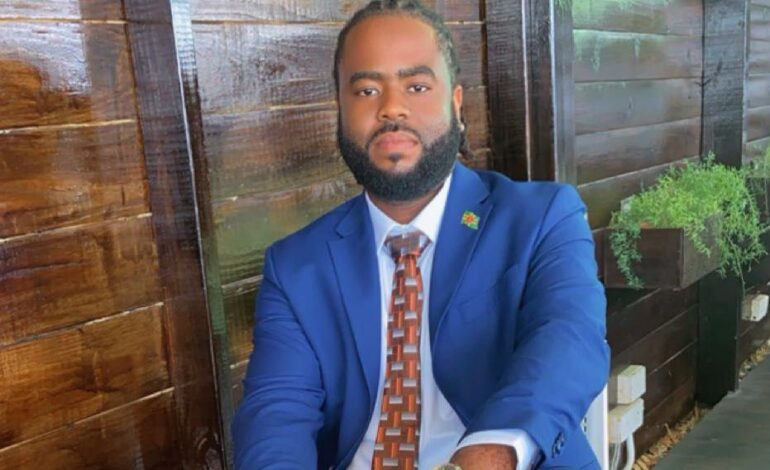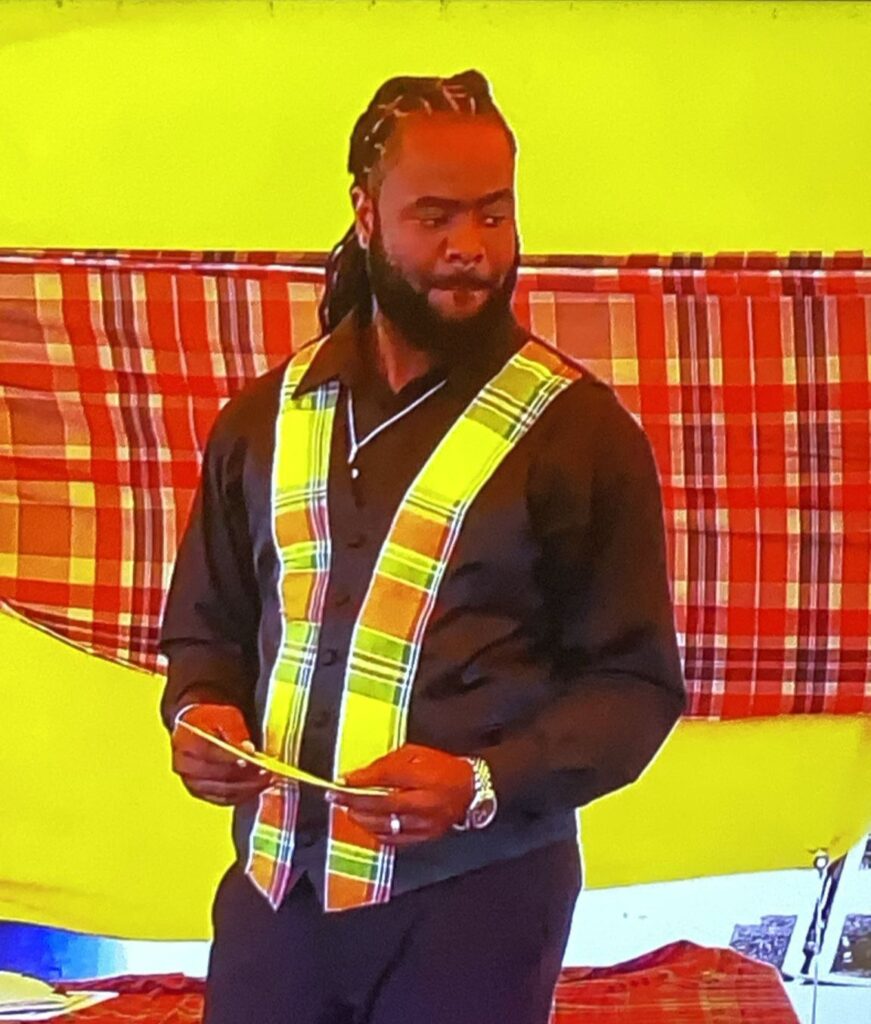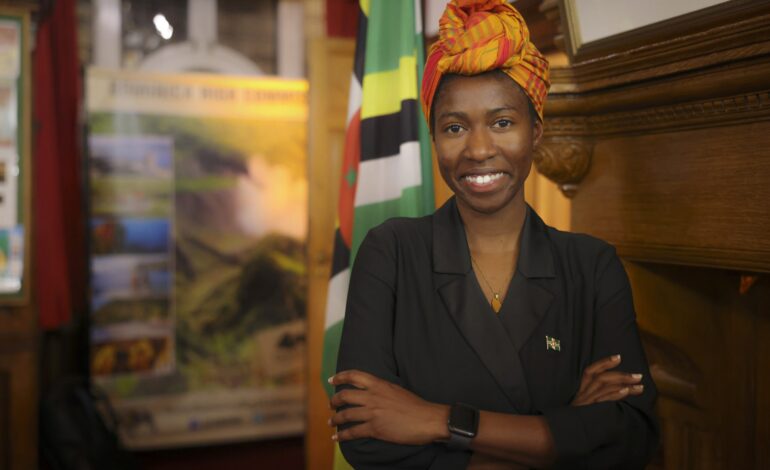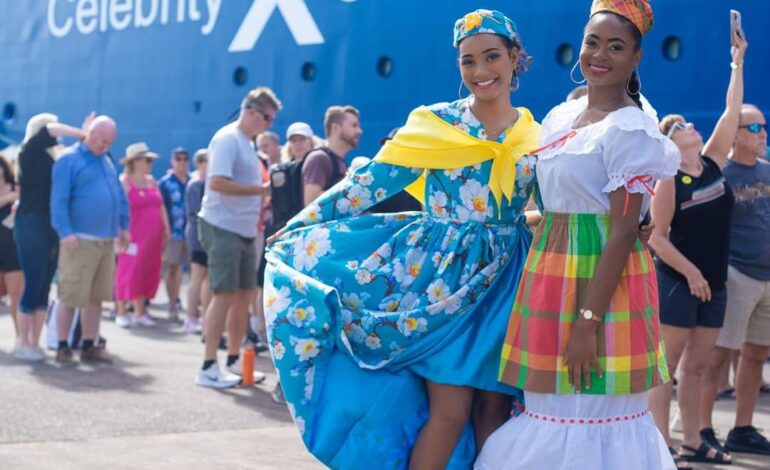
As we come together to celebrate 46 years of independence under the theme “Péyi Nou, Kado Nou”—”Our Country, Our Gift”—we pause to reflect on the rich legacy of our nation and the path we want to pave for future generations. This is a moment to honor our past and celebrate our unity, as well as a call to action, especially for our young people, to hold fast to the vibrant cultural threads that make Dominica unique.
In every corner of our beautiful island, we see the colors of our heritage come alive. Our traditional dances, the flavors of our cuisine, the beats of our music, and the beauty of our Creole language all reflect the resilience, creativity, and warmth that define us as Dominicans. However, while we have come a long way, there is more to be done to ensure that these aspects of our culture are not just celebrated once a year but become a fundamental part of our lives, especially for the youth who are the future keepers of our heritage.
Forty-six years of independence may seem like a significant milestone, but it is merely a step in the ongoing journey of nation-building. Our independence must mean more than a historical date; it must represent a living, breathing commitment to nurturing and passing on our cultural wealth. For this reason, we must ask ourselves: What are we doing to embed our culture in the hearts and minds of the younger generation? How can we ensure that our children grow up knowing and cherishing the beauty of kweyol, kokoy, and our Indigenous languages, as well as the traditional music, dance, and cuisine that tell the story of who we are?
Today’s youth have an essential role to play in preserving and promoting the culture we hold so dear. Yet, for this to happen, we must make our culture a regular part of their lives and education. It is time to integrate our Creole language into the school curriculum, to teach our children how to speak and understand kweyol, so that they can communicate with the wisdom of our elders and keep the language alive. Language is not just a means of communication; it is a vessel for history, values, and identity. When our children speak Creole, they carry forward the spirit of their ancestors and strengthen their connection to our shared heritage.
The same goes for our traditional dances and music—the bélé, quadrille, jing ping, and other forms of artistic expression. These are not just performances for festivals; they are expressions of identity, ways to tell stories, and an art form that bonds our communities. Let us bring these dances and music styles into our schools, so our youth can learn, appreciate, and love them as part of their cultural legacy. By doing so, we empower our young people to feel proud of their heritage and foster an environment where traditional arts flourish alongside modern influences.
Food, too, is an essential part of our culture. Our cuisine reflects the resilience and resourcefulness of our people and showcases the land’s bounty. Young Dominicans should know how to cook the traditional dishes that have been passed down for generations. Callaloo, fig and codfish, and other traditional meals are more than food—they are a taste of history, a reminder of the ingenuity and community that have sustained us. Including culinary arts and traditional cooking in school programs can help ensure that these dishes are enjoyed and passed on to future generations.
Our Indigenous heritage is another precious gift we must pass on. The traditions, language, and practices of our Indigenous communities are a valuable part of Dominica’s story. We owe it to them, and to ourselves, to preserve and celebrate these elements of our shared heritage. Introducing Indigenous history, language, and culture in schools, alongside kokoy and kweyol, will give all Dominican children a fuller understanding of their country’s diversity and the beauty of our multicultural identity.
Our journey as an independent nation continues, and it is up to us to decide how we will walk this path. We can choose to let our traditions fade, or we can choose to embrace and celebrate them, ensuring they remain vibrant and relevant for generations to come. Our culture is a gift, one that has been shaped by the resilience, struggles, and triumphs of our ancestors. It is our responsibility to protect this gift and to ensure that it thrives.
So, as we celebrate 46 years of independence, let us commit ourselves to making our culture a living, breathing part of our everyday lives. Let us work together to bring Creole, kokoy, and Indigenous languages into our schools, to teach our children to dance to the beat of their heritage, to cook the food that has nourished generations, and to play the music that resonates in the soul of Dominica.
To the youth of Dominica, this is your culture, your heritage, and your future. Embrace it, celebrate it, and carry it forward with pride. By doing so, you honor those who came before you, and you ensure that Dominica’s cultural legacy will continue to shine bright for many generations to come.
Happy Independence Day, Dominica! May our love for our country and culture grow stronger with each passing year.







2 Comments
🙏🏾
I felt that message.
I endorse this message.
Well said 🫡,
I have never understood, why we had to wait so long to eat creole food..
Nuff respect.
After 46 years of Independence, Dominica still remains on it’s knees with a begging bowl in it’s hand. There is no infrastructure for manufacturing or development of commerce and industry. Dominica had one chance to progress and that was the development of the tourist industry. The CBI programme was supposed to bring in the funds for the development of Dominica’stourism industry but instead it was stolen by the crooked politicians running the country for their own greedy purposes and at the expense of the people of Dominica. Now we have water and electricity shortages as a daily part of life as if we were still living in the 1900s whilst the Politicians build themselves Palatial homes and enjoy the fruits of wealth.
We have been deluded for long enough by this bunch of selfish miscreants and instead of getting the international airport and the new Roseau that was promised we just have more empty promises and nothing to show for the $2Bn that is claimed for the airport and $41M that was borrowed from Saudi Investment Fund except a little bit of tarmac on the Bayfront.
You politicians should hand your heads in shame as “our country, our gift'” is being sold to the highest bidder just so you can maintain this lifestyle whilst the average man in the street continues to starve.